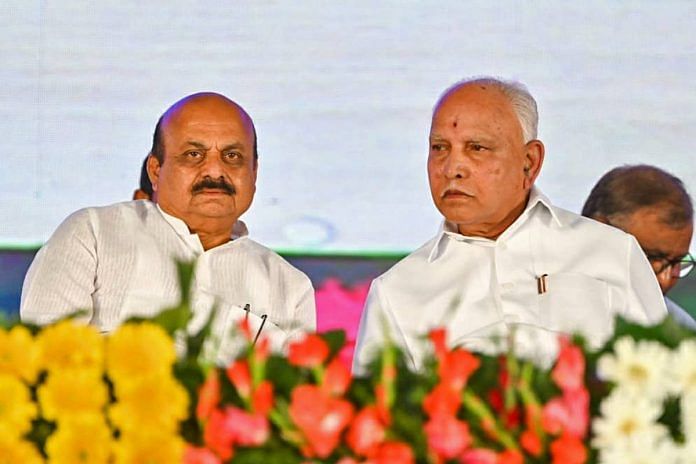On 27 March, Muslim, Vokkaliga, and Banjara communities organised protests against the Karnataka government’s decision to revoke 4 per cent OBC reservation for Muslims in the state. The Basavaraj Bommai-led Bharatiya Janata Party government has, instead, distributed the quota among the two dominant communities of Veerashaiva-Lingayats and Vokkaligas and placed Muslims under the Economically Weaker Section category, generating some support from Dalit and Lingayat factions. In response to the outrage, Home Minister Amit Shah argued that the Constitution does not provide reservation on the basis of religion.
Shah is correct in assessing that reservation should not be based on religion. The Muslim community has a hierarchical structure, and quota should be granted accordingly. Central and Karnataka lists of OBC Muslims already identify Pasmanda Muslims. Additionally, Scheduled Tribe Muslims, such as Siddis and Todas, receive reservation in their respective categories. Thus, it is important to recognise that Muslim reservation should be based on hierarchical structure, not religion.
But a pressing question remains: Would moving Muslims under the EWS category truly do justice?
Decoding the Karnataka government’s decision
On 25 March, the Bommai cabinet scrapped the 3A and 3B reservation categories. The state government has removed the 4 per cent OBC reservation that Muslims have been enjoying. Under changed rules, Muslims have been brought under the EWS category. As a result, Vokkaligas and Lingayats have now been pushed under Category 2, provisions of which presently offer reservation to OBC (2A) and minorities (2B). The Karnataka State Commission for Backward Classes recommended the decision and submitted a report to the chief minister on 23 December 2022.
According to an Indian Express report, Vokkaligas pushed for their 4 per cent quota to be raised to 12 per cent while Panchamasalis (a subsect of the Lingayat community) sought inclusion under the 2A reservation category. Clearly, not meeting these demands could jeopardise BJP’s electoral plans in Karnataka.
Despite Shah’s claim that reservation shouldn’t be based on religious identity, the reality is that Muslim OBCs are already included in the Karnataka OBC list, except for upper-caste Ashraaf Muslims (such as Cutchi, Navayat, Bohra, Sayyid, Sheikh, Pathan, Mughal, Mahdiva, and Konkani or Jamayti Muslims). Those interested can see point number 179 on the National Commission for Backward Classes (NCBC) website, which clearly shows that other Muslims have been included in the OBC list. The previous 4 per cent reservation was intended for Pasmanda Muslims and placing Pasmanda Muslims under the EWS category does not make any sense. EWS category should only include Ashraafs’ financially weaker sections that would ensure that only needy upper-caste community members can benefit from reservation.
Also read: Muslim intellectuals defend madrasas, but their kids don’t go there. Only poor, Pasmandas do
Bommai’s move discriminates against Pasmandas
Bommai’s action exhibits discrimination toward Pasmanda Muslims. It is concerning that instead of implementing corrective measures and granting Pasmanda Muslims their rightful benefits, the government is placing OBC Muslims in the EWS category. The government should compile a list of Pasmanda Muslims, remove any Ashraaf community members, if present, and provide OBC reservations based on the caste or hierarchical structure of Muslim society. Rather than grouping all Muslims together and relocating them to the EWS category, BJP could enact these corrective measures to bring about genuine social justice within the community. Unfortunately, the party appears unwilling to do so, likely due to its electoral calculations.
Although casteism exists within the Muslim community, it has not been officially recognised due to Ashraaf intellectuals’ claim that it does not exist. However, the OBC category for Muslims—as highlighted in the Sachar Committee report—sheds light on the reality that backward classes exist within the community and are entitled to reservation. Many Pasmanda castes fall under the OBC category and are rightfully receiving reservation benefits.
Following the allocation of reservation to Pasmanda Muslims in 1992, the same Ashraaf intellectuals, who had previously refused to acknowledge casteism and reservation, began to demand quota based on religion. Unfortunately, some Pasmanda Muslims, due to misinformation or lack of awareness, began to partake in such demands, even though they were already benefiting from reservation.
Also read: Deobandis Arabising Indian Muslims in name of Islam—a culture war Barelvis fought for 150 yrs
The hypocrisy of Ashraafs
One can take Andhra Pradesh as an example of the hypocrisy of Ashraaf intellectuals. Here, the state government’s proposal to provide caste-based reservation to Muslims in education and government jobs was met with opposition from the Ashraaf Ulema – the Muslim United Action Committee and other Muslim organisations, both of which are dominated by Ashraafs, went so far as to issue a ‘fatwa’ against it in 2013.
They claimed that this move was not in accordance with Islamic principles, and could lead to further division within the Muslim community. Also, Ashraaf political leader Asaduddin Owaisi, who claims to be a well-wisher of the Muslim community, supported the fatwa in question, demanding reservation based on ‘Muslim identity’ instead.
In addition to the injustice faced by Pasmanda Muslims due to the dishonesty of Ashraaf intellectuals, they have always been denied their share in the name of collective Muslim identity and the minority cause. For instance, while Pasmanda Muslims are eligible for reservation at the Banaras Hindu University (BHU) under the OBC category, they do not receive the same quota at the Aligarh Muslim University (AMU) because AMU has minority reservation instead. The results of this disparity are evident.
Pasmanda Muslims deserve reservation, but it should be based on their caste and class. It is crucial to take corrective measures to eliminate quota based on religion. This policy should be applied to all places where Muslim reservation is currently in effect.
Amana Begam Ansari is a columnist and TV news panelist. She runs a weekly YouTube show called ‘India This Week by Amana and Khalid’. She tweets @Amana_Ansari. Views are personal.
(Edited by Zoya Bhatti)



